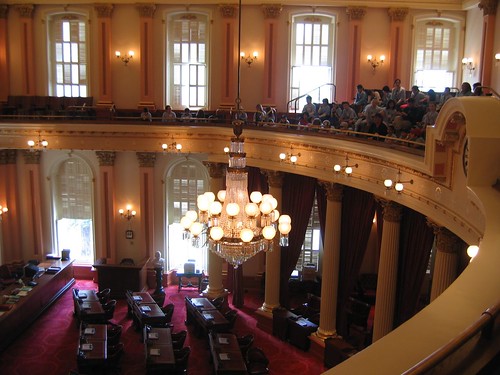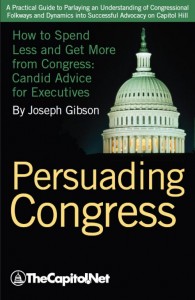Washington DC is teeming with interest groups, lobbyists and other groups, all with the goal of trying to affect the outcome of public policy. Although the idea of interest groups and lobbyists having an effect on Congress finds disfavor with many people, it is likely that the number of interest groups and lobbyists will continue to expand in the future. This means it is imperative to develop an understanding of exactly how interest groups can affect Congress.

The activity of interest groups and lobbyists is protected by the First Amendment of the Constitution. “Congress shall make no law…abridging…the right of the people…to petition the Government for a redress of grievances.”
There are all types of lobbyists and interest groups that work in Washington on a daily basis to represent the interests of a variety of organizations, businesses, and people. Most of the large businesses in the country employ lobbyists on an in-house basis. Lobbyists also work in and with trade associations. There are also independent lobbying firms and law firms that may provide services as well.
Lobbyists and interest groups can provide a very valuable service to Congressional members. It is practically impossible for any single member of Congress to understand every aspect of a particular issue. Members of Congress rely on lobbyists to explain the way in which  organizations and businesses operate before they form an opinion on a particular issue. In many cases a business or organization may be part of a member’s constituency, which means that when the member hears from an interest group or lobbyist they are actually hearing about the interests that affect the people they represent.
organizations and businesses operate before they form an opinion on a particular issue. In many cases a business or organization may be part of a member’s constituency, which means that when the member hears from an interest group or lobbyist they are actually hearing about the interests that affect the people they represent.
Regardless of the size of your organization, you probably have representation in Washington. You can certainly be sure that other organizations will have representatives who are active and busy in Washington to ensure they have the greatest advantage possible.
Small groups often find that representation through a trade association is sufficient while larger groups may consider employing an independent firm to represent them in Washington. To learn more about lobbying and interest groups as well as the influence they can have on Congress, consider our 1-day course, Congressional Dynamics and the Legislative Process, and our 3-day Capitol Hill Workshop.
Reference: Persuading Congress, by Joseph Gibson, Ch. 12 Interest Groups and Lobbyists
Courses
- Congressional Operations Briefing – Capitol Hill Workshop
- Congressional Dynamics and the Legislative Process
- Drafting Federal Legislation and Amendments
- Understanding Congressional Budgeting and Appropriations
- Advanced Legislative Procedure
Publications
CongressionalGlossary.com, from TheCapitol.Net
For more than 40 years, TheCapitol.Net and its predecessor, Congressional Quarterly Executive Conferences, have been teaching professionals from government, military, business, and NGOs about the dynamics and operations of the legislative and executive branches and how to work with them.
Our custom on-site and online training, publications, and audio courses include congressional operations, legislative and budget process, communication and advocacy, media and public relations, testifying before Congress, research skills, legislative drafting, critical thinking and writing, and more.
TheCapitol.Net is on the GSA Schedule, MAS, for custom on-site and online training. GSA Contract GS02F0192X
TheCapitol.Net is now owned by the Sunwater Institute.
Teaching how Washington and Congress work ™

